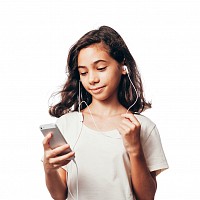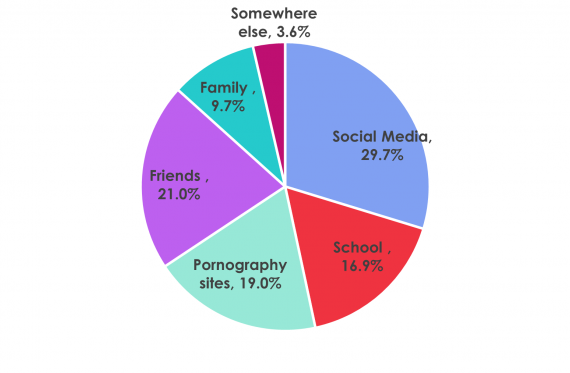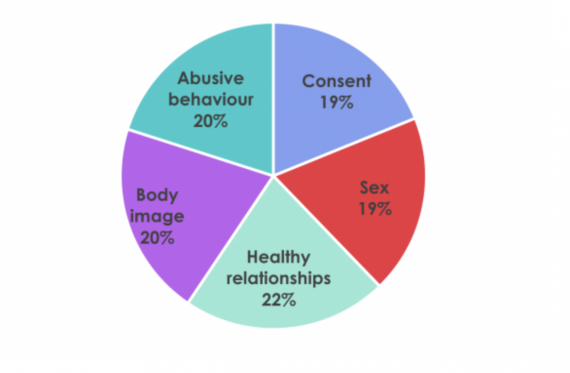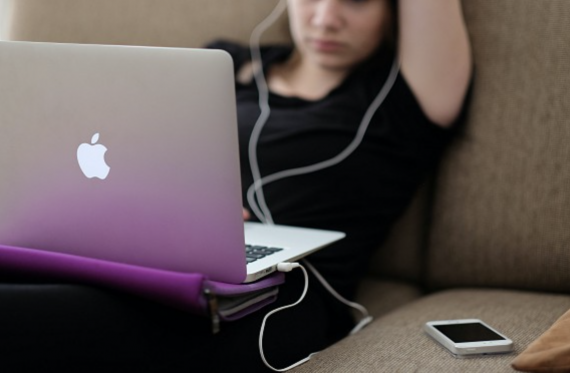What should be taught in Relationships & Sex Education? (RSE)
The results from 42,498 young people in the UK.
7th-14th October 2022
7th-14th October 2022
Relationships and Sex Education (RSE) is a highly debated topic in the news today, with differing opinions on what should and shouldn't be included in the curriculum. On one hand, teachers and organizations are urging for more government support in establishing what topics should be covered in schools, while on the other hand, some parents and groups are concerned that RSE may cover material that is unnecessary for young people. Against the backdrop of a generation who are increasingly online and exposed to more content than ever before, we asked over 42,000 young people what they thought about RSE, to understand their perspectives on the impact of the internet on sex and relationships, as well as their desires for the content of their lessons.
Back to results overview
Total votes
5-11 votes
11-18 votes
Before casting their votes, the children and teens participated in a lesson exploring the topic of the internet's impact on sex and relationships, led by their teachers. Through interactive activities and group discussions, they were able to consider different perspectives and reflect on their own experiences. The lesson aimed to encourage critical thinking and empower the children and teens to make informed decisions. Following the lesson, they were asked to vote on whether they believed the internet has an impact on the way we view sex and relationships, as well as provide additional insights on the topic.
Among the children and teens who participated in the lesson, the results were clear - they were holding the internet accountable for its impact on the way we view sex and relationships.
The vast majority of those who voted believed that the internet has an effect, with many comments delving deeper into why. Some participants mentioned reality TV, social media, and pornography displaying unrealistic examples of what constitutes a healthy relationship.
As one 11-18 year old put it, "I think that the Internet are setting standards on relationships and making everything perfect whereas in real life relationships are nothing like that. People also have their ups and downs. All relationships are different."
Another participant added, "The internet does have an effect, but there are also other things that impact the way we view sex and relationships too such as family and friends. Social media has a big impact, however, and can cause young people to have a distorted view of what a healthy relationship is. Viewing other people's lives can make us think ours is not good enough, and the same happens for body image."
While our age 5-11 voters were less certain about whether the internet changes the way we feel about ourselves compared to their older peers, over half of them still voted yes. However, interestingly, 40% voted no. The comments from this age group showed that many of our youngest voters are aware of the negative aspects of the internet but are able to see past it and recognise the beauty in difference. As one child commented, "Yes, because people use filters to make themselves look more attractive and it can make you feel like you are not good enough."
We delved a little deeper into our results this week with some optional, additional questions. They helped us to understand how much of an effect the internet has and discover which topics young people want to learn more about in schools.

"Yes, because people use filters to make themselves look more attractive and it can make you feel like you are not good enough."

“I think that the Internet are setting standards on relationships and making everything perfect whereas in real life relationships are nothing like that. People also have their ups and downs. All relationships are different.”

"The internet does have an effect, but there are also other things that impact the way we view sex and relationships too such as Family and Friends. Social media has a big impact however, and can cause young people to have a distorted view of what a healthy relationship is. Viewing other people's lives can make us think ours is not good enough, and the same happens for body image."

Our first additional question highlighted where young people are turning to for information on sex and relationships. Almost 20% of our 11-18 year old respondents chose "pornography sites" as a source of information, while less than 10% selected family and just under 17% chose school*.
These results are concerning, but not surprising given that, in a study by The Sex Education Forum of more than 1,000 students, over a quarter of respondents did not find their RSE lessons relevant or helpful, highlighting the need for improvement in the way RSE is taught.
*For this questions, participants could choose all the options that they felt applied to them.

In response to the question "Which topics do you feel young people need to learn more about?", students were able to select all the options that applied. The majority of respondents chose multiple options, indicating a clear desire to learn more about important but sensitive topics in schools. The most commonly chosen topics included abusive relationships, body image, consent, and sex education.
The Sex Education Forum also asked this question. They found that 58% of young people felt power imbalances in relationships were not covered enough or at all. Additionally, 58% of respondents felt that pornography was not covered enough or at all, and 57% felt that culture and faith-based perspectives were not covered enough or at all.
While the responses from both groups of young people may be different - the conclusion is the same: these findings reveal a strong need for schools to prioritise comprehensive and inclusive sex education that covers a range of sensitive but crucial topics, and young people don't feel like their schools are currently getting it right.

When asked "Where have you seen bad examples set for healthy attitudes towards relationships & sex?" respondents provided the following answers: "Reality TV creates a warped view and idolizes some very toxic relationships," and "Porn sites and reality TV shows like Love Island." These responses suggest that media, particularly reality TV and pornography, can have a negative impact on young people's understanding of healthy relationships and sexuality.
It is clear that the internet has a significant effect, and many young people are turning to worrisome methods to find information that they do not feel they are getting in school. At the same time, the internet, our understanding of relationships & sex, and the challenges faced by young people today are moving incredibly quickly and changing all the time, meaning that schools can feel that they are always on the back foot. However, we shouldn't be frightened of RSE as a curriculum area is being ever-changing. Instead, maybe it is time to consider a curriculum that is built around the needs of today's teenagers, in today's world with today's exposures. It could also be an opportunity to hear from the biggest stakeholders in education, the students themselves, and let them tell us what is needed for them to be able to make informed decisions on RSE.
At VotesforSchools we've created a wide range of lessons covering all aspects on the Relationships & Sex Education Curriculum. You can trial our lessons on boundaries, consent & toxic online support communities for free, or book a demo with our team to find out how you can access our library of resources.
Additionally, we've written articles to support teachers in teaching tricky topics, such as consent in KS3 & KS4, misogyny and sex education in KS2.
See more articles by VotesforSchoolsWe publish results every week on a range of different topics, from misogyny and hate crime to sports and the environment. Take a look at some of our recent posts on our results page.